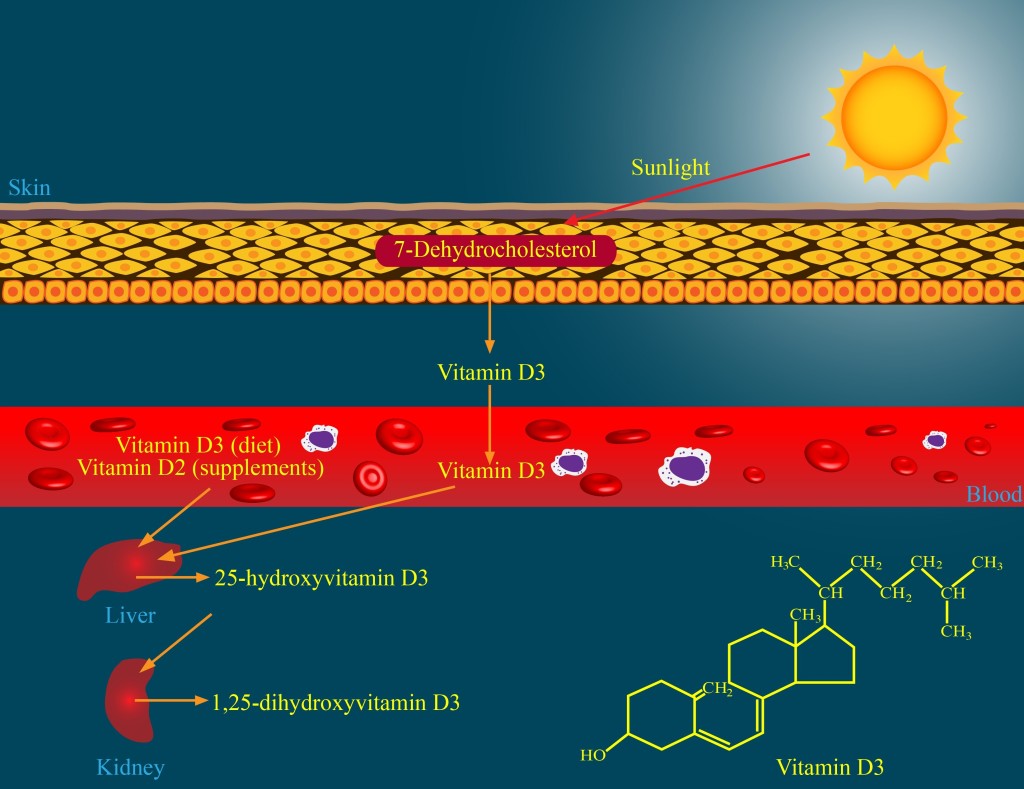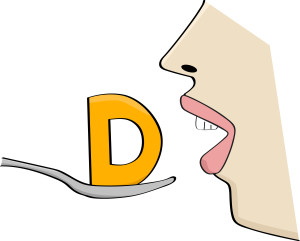Our body requires a number of different nutrients to function normally. Vitamin D is one such nutrient that has a variety of different functions in the body. Women (and men) in India are surprisingly low in Vitamin D levels. This can have detrimental effects on the body, and can affect your health in the long term.
Let’s take a brief look at why this vitamin is essential, and how low levels can affect your health.
What Is Vitamin D?
Our body requires vitamins and minerals that ensure normal functioning of all the cells in the body.
Vitamin D is what is called a ‘fat soluble’ vitamin, and forms an essential component of our bones. It plays an important role in the regulation of calcium and phosphate levels in the blood, and these are primary components of bones and teeth.
Once vitamin D is synthesized in the body, it is converting into an active hormone in order to exert its benefits.
What Are The Sources?
Vitamin D is primarily obtained from sunlight. Our skin absorbs the sunlight, and a series of different chemical reactions occur which ultimately results in the production of vitamin D. While a detailed discussion regarding how this occurs is out of the scope of this article, we thought we would include a diagram that illustrates this for those who love science!

Besides sunlight, different food sources including fortified foods (cereals, margarine), eggs and oily fish such as sardines, mackerel and salmon contain vit D. Cod liver oil supplements are also a rich source, but usually have higher amounts of vitamin A in them (taking too much cod liver oil can be harmful). Vegetarian sources are rare, and people who are vegetarian rely on sunlight as a natural source.
How Does Vitamin D Help Me?
Vitamin D is essential not just to maintain the structure and function of bones and teeth, but is also required for a number of different processes that occur in the body. These are listed in the table below.
[box title=”Functions of Vitamin D” color=”#dba901″]
[list style=”check”]
- Maintain the strength and structure of bones and teeth
- Maintain adequate muscle function
- Build the immune system to fight infections
- Development of the brain
- Keep the lungs and airways healthy
- Promote normal heart function and healthy circulation
- Prevent certain forms of cancer
[/list]
[/box]
These are just some of the positive effects associated with Vitamin D. Research is being conducted into its other useful effects, and there is no doubt the results will be exciting!
How Much Do I Need?
 Well, you will get all that you need if you are exposed to sufficient amount of sunlight. However, in patients who get insufficient amount of vitamin D everyday may require supplementation. This can be either achieved through the foods mentioned previously, but this may not necessarily be feasible for vegetarians.
Well, you will get all that you need if you are exposed to sufficient amount of sunlight. However, in patients who get insufficient amount of vitamin D everyday may require supplementation. This can be either achieved through the foods mentioned previously, but this may not necessarily be feasible for vegetarians.
There are no clear recommendations as to how much supplementation South Asian individuals require. You may be surprised to hear that South Asian women seem to have particularly low levels of vitamin D in their bodies.
One of the likely reason is the lack of exposure to sunlight, which is because women tend to wear clothing that covers their entire body. Hardly any skin is exposed to the sun, and the area that is exposed is not sufficient enough to generate the required quantity.
In cases where the body is not producing sufficient vitamin D, additional supplementation can be obtained by consuming foods that are rich in it. Alternatively, your doctor can prescribe a course of treatment for you that will help increase the levels.
What Happens If I Have Low Levels?
Symptoms include generalised tiredness, body ache and weakness. Some may find that their bones and joints are painful.
However, a lot of patients who have low levels may not have any symptoms. The effects build up over time, and patients can develop a condition called osteomalacia, which is characterized by softening of the bones.
Pregnant women who have low levels of vitamin D are at risk of developing gestational diabetes and small babies. Immunity levels may reduce and patients can become more prone to developing viral infections.
More recently, low levels of vitamin D has been found to increase the risk of COVID-19 infections. Supplementation can lower cytokine storm and thus mortality.
Is There Any Harm In Taking Supplements?
The chances of developing toxicity from vitamin D supplements is rare. It takes several months for any form of toxicity to occur, and often supplements are only offered to those patients whose blood tests have confirmed low blood levels.
The duration of supplementation is around 6 – 8 weeks, so chances of developing any side effects is low. Some may even need a longer course and monthly top ups.
In rare cases, high levels in the blood can result in the calcium levels in the blood increasing. This is called hypercalcemia and may require treatment.
[column size=”2-5″ style=”0″ last=”0″]

[/column]
[column size=”3-5″ style=”0″ last=”1″]
[note color=”#80afff”]Vitamin D is an essential vitamin that helps maintain normal structure and function of bones and teeth. It is easily obtained from sunlight and certain foods. Deficiency is very common among South Asian individuals, and needs treatment especially if they have symptoms.[/note]
[/column]
Where Can I Get My Vitamin D Levels Tested?
Our laboratory at Baliga Diagnostics Pvt. Ltd. offers bone screening and vitamin D level testing. Give us a call today to arrange a test at your convenience.
- Gallbladder Stones – Do I Need Surgery? - April 18, 2021
- Urine Infection? Causes, Treatment & Prevention - July 15, 2020
- Vitamin D – All You Need To Know - July 11, 2020